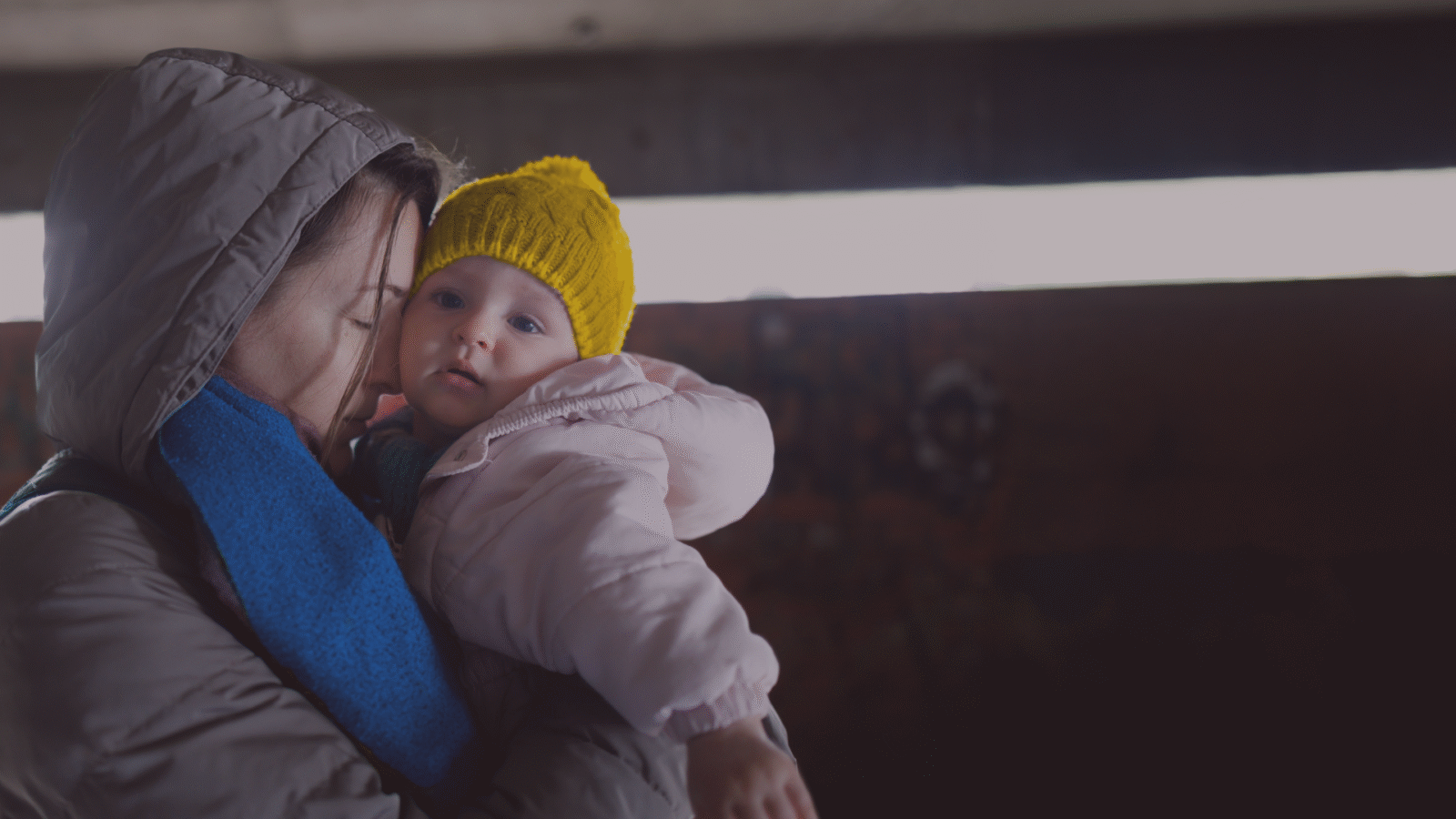
It all starts with a human touch
Our first goal is to make professional mental health services accessible for all Ukrainian children and families through the Virtual Hospital. Whenever they need it. Wherever they might be.
The Key Principles
ACCESSIBLE TO ALL CHILDREN AND FAMILIES
ACCESS
Harnessing the power of telemedicine to ensure every child receives the specialized care they deserve no matter where they are. Empowering families with knowledge and resources to actively participate in their child’s care.
IMPACT THAT MATTERS
IMPACT
Offering a better future for all Ukrainian children and their families – a future where they can get help whenever they need it. Provision of care is a priority, while technology functions as an enabler. Utilised with care and consideration, it helps address the most acute needs of children and families.
INTEGRATED WITH UKRAINIAN HEALTHCARE
INTEGRATION
Ensuring compatibility and integrating with Ukraine’s eHealth system to build credibility and a gateway to local health care professionals and volunteers. Providing seamless end-to-end treatment journeys, mitigating risks of corruption and abuse.
USEFUL TO RESEARCHERS
RESEARCH
Employing evidence-based approaches to treatment and building solutions useful to researchers worldwide. The eventual ambition and aim of the initiative is to establish a research centre focused on the impact of trauma and conflict on the health and wellbeing of children, and supporting their development into healthy, functional adults.
Virtual Hospital in Practice
1 – A children-friendly digital platform
Designed specifically for children and families, the platform delivers accessible, trauma- informed mental health care across Ukraine regardless of location or mobility.
2 – Structured support from start to finish
From registration to follow-up, each child will receive structured care, including clinical assessment, tailored therapy, continuous remote monitoring, and post-therapy follow-up to ensure lasting progress.
3 – Empowering healthcare professionals
Our tools help overwhelmed psychologists and clinicians by streamlining diagnostics, offering evidence-based guidance, and improving caseload management.
4 – Supporting medical coordinators
The platform reduces administrative burden through automated referrals, patient tracking, and standardized documentation workflows.
5 – Gamified and effective recovery tools
Integrated play-based and gamified elements help engage children in their recovery journey, making therapeutic interaction more effective and child-friendly.
6 – Scalable, future-ready infrastructure
Built to integrate seamlessly with Nadija’s upcoming Physical Hospital and Research Institute, the platform forms the digital backbone of a wider Center of Excellence.
Our Roadmap
PROTOTYPE
Q1-2 2025 – Completed
The initial prototype helped validate key concepts, user flows, and core functionalities.
It served as a showcase to demonstrate feasibility, minimize development time and cost, and collect valuable early feedback from both medical professionals and technical partners.
This phase laid the foundation for our MVP by identifying practical needs and refining our design logic.
MVP
Q3-4 2025 – In Progress
Launched in June 2025, the MVP phase focuses on rapid development using built-in platform tools, guided by continuous input from our international team of doctors and insights from ongoing sociological research on children’s needs and behaviours. The MVP will include three applications:
• A medical app for clinicians
• A parent-facing patient cabinet
• A gamified app designed to support child engagement
This phase prioritizes interoperability with Ukraine’s eHealth system, initial cybersecurity measures, gamification features, and exploration of AI-supported functionalities to enhance diagnostics and user personalization.
PRODUCT
Q1 2026 – Launch
In January 2026, the product will launch and be made openly accessible to children, families, and healthcare providers across Ukraine.
From this point, development continues with the goal of evolving into a custom-built, scalable solution independent of third-party platforms.
Over time, it will be fully integrated with the Nadija Physical Hospital and Research Institute, including secure on-site server installations. The system will support national referral pathways coordinated by the Ministry of Health and participating hospitals.
Designed for pediatric use, the platform will be intuitive, secure, and ready for long-term expansion to other crisis-affected regions.

Virtual Hospital is just the beginning
To unlock the full potential of Nadija, two parallel long-term efforts are already underway: establishing a dedicated Research Institute and developing a state-of-the-art Physical Rehabilitation Hospital.
Together, these elements will build a connected system of care and knowledge that supports children and families at every step of recovery.
The Three Pillars
A VIRTUAL HOSPITAL
* Public launch in January 2026
The Virtual Hospital will deliver
accessible, high-quality mental
health services to Ukrainian
children and families regardless of
location or time.
Built with a child-centered design
and equipped for teletherapy,
family support, and gamified
learning, it also includes a model
for onboarding healthcare
professionals.
Through partnership with Ukraine’s
Ministry of Health, it will be
integrated into national
healthcare structures and serve as
a first-line platform for trauma-
informed mental healthcare.
A PHYSICAL HOSPITAL
* Begin construction in 2026
The Physical Rehabilitation Hospital
will be built on the campus of Lviv
National Medical University to offer
long-term care for children with
complex psychological and
physical trauma.
It will support and reinforce the
Virtual Hospital by serving the most
acute cases, hosting clinical
training, and collecting valuable
outcome data to inform future
care.
Its co-location with leading
academic infrastructure will also
make it a national reference
center for pediatric trauma
recovery.
A RESEARCH INSTITUTE
* Kick-off held, launch in 2026
The Nadija Research Institute will
be established as a “Nordic House”
and European-style Center of
Excellence. Focused on trauma
science, child psychology, and
epigenetics, it will advance
understanding of war’s impact on
children and shape next-
generation therapies.
It will continuously inform both
hospitals with evidence-based
insights, enabling a feedback loop
that keeps treatments up to date,
measurable, and scalable – both
for Ukraine and other conflict-
affected regions.
How Everything is Interconnected – The Role of Research
Potential Impact
Potential Impact
1.5 MILLION
Number of Ukrainian children at risk of developing mental health disorders.
As soon as the Virtual Hospital is launched, we will be able to gradually reach this vast pool of vulnerable children.
96 MILLION
Or about 4% of children under the age 18 are exposed to some form of trauma during their lifetime that leads to post- traumatic stress disorder (PTSD).
If the Nadija platform is to be implemented in other national infrastructures, the estimated reach is 64 times larger than during the initial stage of the project.
360 MILLION
Or nearly 15% of all young people aged 10-19 experience a mental health disorder.
If the broader potential of epigenetic research is realised through the Research Institute, the reach could further increase almost fourfold.
Sources: UNICEF, The Children’s Hospital of Philadelphia, National Healthcare Quality and Disparities Report

War is no excuse
Every child deserves mental care.






